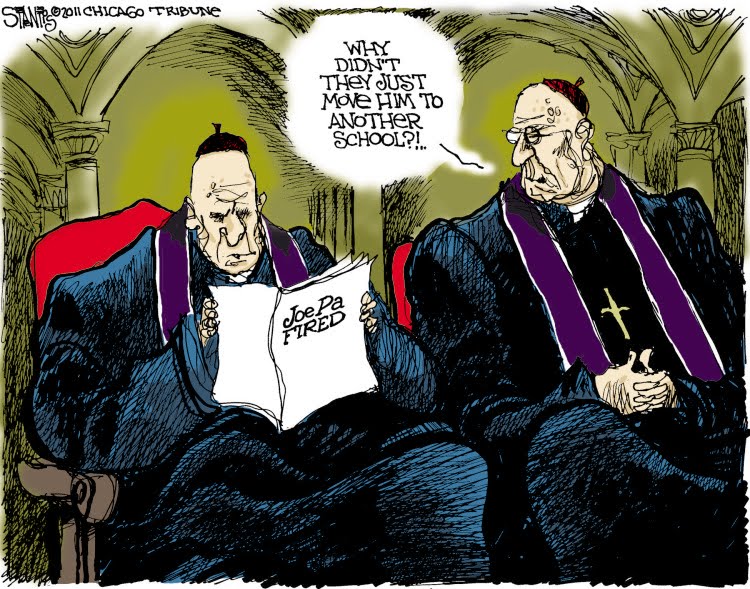Pope Benedict XVI insisted on Saturday that all of society’s institutions and not just the Catholic church must be held to “exacting” standards in their response to sex abuse of children, and defended the church’s efforts to confront the problem.
Benedict acknowledged in remarks to visiting U.S. bishops during an audience at the Vatican that pedophilia was a “scourge” for society, and that decades of scandals over clergy abusing children had left Catholics in the United States bewildered.
“It is my hope that the Church’s conscientious efforts to confront this reality will help the broader community to recognize the causes, true extent and devastating consequences of sexual abuse, and to respond effectively to this scourge which affects every level of society,” he said.
“By the same token, just as the church is rightly held to exacting standards in this regard, all other institutions, without exception, should be held to the same standards,” the pope said.
The pedophile scandal has exploded in recent decades in the United States, but similar clergy sex abuse revelations have tainted the church in many other countries, including Mexico, Ireland, and several other European nations, including Italy.
But the most high-profile sex abuse case in the United States at the moment doesn’t involve the church. Penn State university’s former defensive football coordinator Jerry Sandusky has been charged with sexually abusing eight boys, and the fallout has led to the firing of longtime coach Joe Paterno and the departure of university president Graham Spanier.
College football in the U.S. is highly popular. The scandal has shaken the reputation of a college program that long had prided itself on integrity.
Benedict didn’t address accusations by many victims and their advocates that church leaders, including at the office in the Vatican that Benedict headed before becoming pontiff, systematically tried to cover up the scandals, and that they have rarely been held accountable for that.
Investigations, often by civil authorities, revealed that church hierarchy frequently transferred pedophile priests from one parish to another.
Benedict told the bishops that his papal pilgrimage to the United States in 2008 “was intended to encourage the Catholics of America in the wake of the scandal and disorientation caused by the sexual abuse crisis of recent decades.”
Echoing sentiment he has expressed in occasional meetings with victims of the abuse on trips abroad, Benedict added: “I wish to acknowledge personally the suffering inflicted on the victims and the honest efforts made to ensure both the safety of our children and to deal appropriately and transparently with allegations as they arise.”
Benedict seemed to be reflecting some churchmen’s contentions that the church has wrongly been singled out as villains for the abuse.
Despite criticism over U.S. bishops’ handling of the abuse scandals, Benedict exhorted the churchmen to be moral compasses for U.S. society. The bishops, in Rome for consultations with the pope that are scheduled every five years, were urged to speak out “humbly yet insistently in defense of moral truth.”
Benedict lamented what he called efforts to stop the church from speaking out publicly.
Earlier this month, U.S. Roman Catholic bishops vowed to defend their religious liberty in the face of growing acceptance of gay marriage and what they called attempts by secularists to marginalize faith.
In Illinois, for example, government officials ceased working with Catholic charities on adoptions and foster-care placement because the religious agencies refuse to recognize a new civil union law. Illinois bishops are suing the state.
Bishops have also pressed federal officials for broader religious exception to U.S. President Barack Obama’s health care overhaul, which mandates that private insurers to pay for contraception.
“Despite attempts to still the church’s voice in the public square, many people of good will continue to look to her for wisdom, insight and sound guidance in this far-reaching crisis,” Benedict said, citing what he called a “growing sense of dislocation and insecurity” in the face of economic woes.
But he acknowledged that some of the bishops’ own flock are turning away from the church, which he blamed on effects of a “secularized culture.” Many U.S. Catholics shun Sunday Mass attendance or disregard such Vatican positions against contraception and divorce.
Complete Article HERE!

